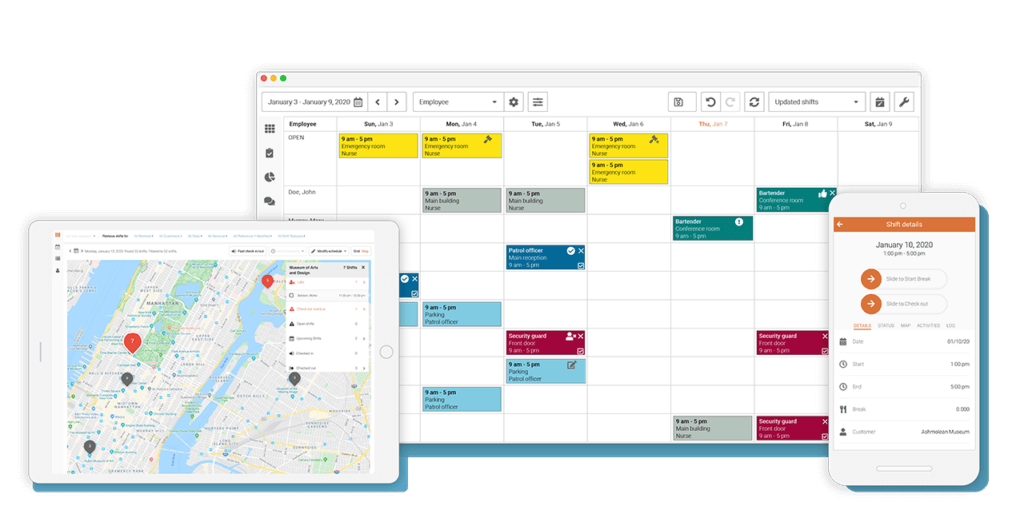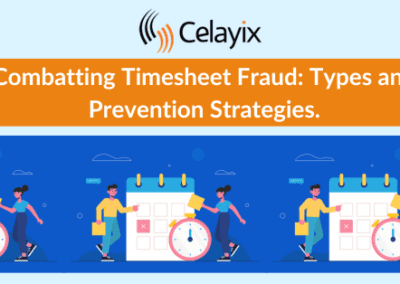December of 2021 saw a provider of workforce management software fall victim to a ransomware attack, which caused a blackout across all services. It exposed critical weaknesses in the software’s security. This blackout meant that the platform users were locked out of payroll processes, employee schedules, paid leave requests, and other vital functions. Ultimately, employers had no time and attendance data to process payroll, and some employees were left without paychecks in the run-up to Christmas.

As an employer, this sounds like a nightmare, right? Often when using a third-party software provider, you are trusting them with company and client data. Fortunately for business owners, the rate at which software and software products are evolving is rapid, making their business process more efficient and economical. However, when compared to the rate at which software security is evolving, it’s no surprise that attacks like the above are happening. In an age of cybercrime, some of the most widespread cyber-based crimes include:
- Stealing information via hacking
- Carrying out virus attacks to bring computer systems down
- Implanting spyware with the intent of watching a person or their computer activities
With this in mind, business owners need to take action when it comes to choosing, and maintaining software of any kind. Before we discuss what business owners and software providers can do when it comes to software security, let’s first break down the impact of cybercrime.
How software breaches affect your company
At surface level, most business owners recognise why they want to avoid breaches to their software security. However, some might be surprised how far-reaching these effects can be.
Reputation

Warren Buffet once noted that “it takes 20 years to build reputation, and five minutes to ruin it”, and boy was he right. Regardless of how positive a reputation your company has, a serious software security breach can be detrimental. Often, the media will uncover, assess and publicise all details of the breach to the public, meaning even those unaffected are acutely aware of the situation, and your response. While response efforts are often enough to recover some reputation, it is very difficult to bounce back to your previous state.
Legal Impact
Depending on the impact of the software security breach, and whom it affects, organizations often face lawsuits as a result. Clients, customers, and potentially even employees can take legal action. Cases that see data or other personal information leaked are generally the events that evoke legal response from those impacted.
Financial Loss
As you can imagine, following on from the damage to company reputation, companies that experience software security breaches often lose customers and users. Not only does the software provider likely lose customers, but the organization may also lose business too. Statistics on cybercrime conducted in 2019 to analyze breaches and their impact show that an increasing number of breaches are costing companies figures in the millions of dollars ballpark. In fact, they can cost up to $3.92 million.
Take a home healthcare agency for example. They might use a particular patient scheduling software. The software provider experiences a software security breach, resulting in patient data being exposed. Now, the agency may not want to work with that software provider moving forward. Patients may also want to move away from the agency that was a victim of the breach. It creates a domino effect of financial loss for those involved. There might also be fees associated with mandated information monitoring from the government depending on the type of breach.
While these effects are enough to scare any business owner into being diligent about software security, it doesn’t always end there. If an organization is public, stock prices will likely plummet. If it is a private company, investors also might back out, which can be detrimental. So, what can business owners do to reduce these risks?
Improving Software Security for your Business
As a business owner, there are a range of steps you can take to ensure that all of the software you use is secure, and to protect yourself from threats.
Due Diligence
Avoiding using any third-party software isn’t always a feasible option. Software generally makes life easy, saves you money, and makes processes more efficient for your organization. So, in order to protect yourself and your customers from cybercrime, it is crucial to do your due diligence when assessing vendors. When dealing with salespeople or advisors, be sure to ask all of the questions around software security.
- What measures do they take to protect your data?
- Do they have a dedicated software security team?
- How often do they assess the standard of security?
- What protocols do they have in place in the event of an attack?
There is also a wide range of regulatory compliance frameworks that you can check the software provider meets. One of the most applicable in software security is NIST – The National Institute of Standards and Technology. NIST is not technically a regulatory framework, but rather a policy framework. In other words, it represents a set of best practices for keeping data secure. However, software providers are not legally obliged to meet these standards, so due diligence is crucial to check that they do.

All-in-One vs. Specialist Software
As we mentioned at the beginning of this piece, software security threats often impact every function of the software platform. When a business relies on one software provider for a range of critical business functions, they are essentially putting all of their eggs in one basket. All-in-one software does have a range of benefits, such as easy transfer of data and affordability. However, if all in one software is breached, businesses generally have little or no back to fall back on.
So, rather than relying on an all-in-one software provider, you are generally in a safer position when you use specialist software. This means choosing employee scheduling software, payroll software, billing software, appointment scheduling software, and other specific platforms. Doing this has a range of benefits;
- Specialist software providers are generally best of breed in the service they provide you. This means getting to class functionality, customer service, and generally software security.
- They can generally integrate with a range of other software providers, meaning you don’t lose out on data transfer and other benefits from all in one.
- Finally, in the event of a breach, you might lose one vital business function, rather than a range of them. It is extremely unlikely that a number of software providers will experience a breach at the same time.
Software Security Policy

Finally, all organizations should take it upon themselves to establish and enforce a software security policy. This can give you added protection against potential threats. It should address both simple, and complex items, such as employee login processes, computer, and other hardware security standards. Determining whether you opt for cloud software vs. On-premise software is also an important decision for your business needs. There are pros and cons to each, and each comes with varying degrees of software security.
Overall, business owners simply need to understand the importance of software security. Ensure you are working with software that can guarantee that both your company and customer data is secure. In the event of a breach, having a crisis plan in place can make life easier, and ensure employees and customers are kept safe.




